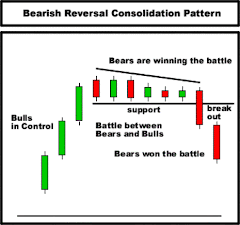Options and Futures are forms of derivatives that investors buy and sell around the world. There are many different terms to become familiar with regarding these investment strategies before you begin using them as part of your investment strategy.
Basic Terms:
· Call Options- these give the owner the right to buy a stock at a specified price, within a specified amount of time. Investors who buy call options are hoping that the stock value increases before the option expiration date.
· Put Options- these give the owner the right to sell a stock at a specified price, within a specified amount of time. Investors who buy put options are hoping that the stock value decreases before the option expiration date.
· Strike Price- the price that the option can be bought or sold at.
· Stock Option- a stock option gives the contract owner the right, not the obligation, to buy or sell a specific security, at a specified price, within a specified time period
· Futures Option- a futures option gives the contract owner the obligation to purchase or sell a security at a specified price at a specified date in the future
There are 4 types of investors in the options market:
1. Buyers of call options
2. Sellers of call options
3. Buyers of put options
4. Sellers of put options
Investors who buy options are called 'holders' and investors who sell options are called 'writers'. There is an important difference between the two stock option investors. Investors who buy puts and calls have the choice to exercise their option contracts. Investors who sell puts or calls have the obligation to exercise their options contracts.
The price of a stock option must go above the strike price for investors to exercise and make a profit on call options and the price must go below the strike price for investors to make a profit on put options. When options fall into these ranges, they are called "in the money".
Futures options are contracts creating the obligation for an investor to buy or sell an underlying instrument, at a certain date in the future, and at a specified price. The future date in the contract is called the delivery date and the futures prices is the pre-set price. Futures options are obligations to buy or sell the underlying instrument. Unlike traditional stock options, investors MUST buy the underlying instrument at the contract expiration date. The Futures seller delivers the commodity to the buyer, or if it is a future settled as cash, the cash is transferred to the party making a profit. Futures contracts specify the underlying asset, the type of settlement (cash or physical), the amount of units, the type of currency, the grade of delivery and the delivery month.
When an investor is seeking to trade futures options, they are either selling options as puts or buying options as calls. If the investor believes that the commodity values will decline, they buy put futures, and if the investor believes that the value of the commodity will increase, they buy call futures. For both methods, the futures contracts are bought and sold at the strike prices.
Investing in stock options and futures is an important strategy to building personal wealth within the stock market. It is important to understand the basics of each before adding these strategies to your investment portfolio.
To learn about investing in stock options visit: http://www.optiontradersjournal.com
Article Source: http://EzineArticles.com/?expert=Mika_Hamilton
| Free Technical Analysis Tutorial |
| Hot Stock Picks |
| Stock Market Tips |



Fundamentals of the Options and Futures Markets
Subscribe to:
Post Comments (Atom)





No comments:
Post a Comment